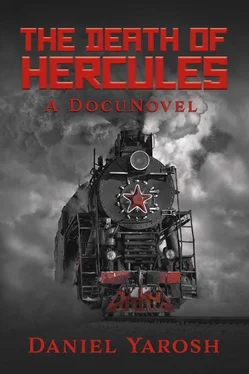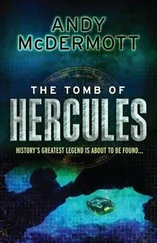Germany in late November 1918 was in a catatonic state. Since the abdication of the Kaiser on November 8, the steel frame of the State continued to work while the patina of the Emperor blew away like a flag from its coffin. The State had last been challenged seventy years before in the Revolution of 1848 by an alliance of liberal shopkeepers and radical workers. The noblemen, military and industrialists had broken that uprising and built a commercial nation of great wealth draped in nationalism and demanding international respect. The cries of the impoverished were suffocated in discharges of factory steam. But now the country’s honor war had exhausted the populace, emptied their purses and antagonized their neighbors. The crushed revolutionaries breathed new life. Paralyzing fear of what was to come after the nation’s surrender followed the deadly influenza through the city streets.
Deena slept easily on the train in the late afternoon after they departed Namur, her head tucked beneath Zalmund’s shoulder, blowing long and low measured breaths. This was the most peace she had found in many weeks. Her conscience was exhausted from the moral complications of standing by Zalmund in the intense struggle for survival. When this all started early in the year, she thought she had her bearings, but that was many choices ago. Now she decided what to do at each turn without reaching back to values from her mother. What she had been taught about her worth, her place in the world, had been upended by Zalmund. She was more than a pre-wife and future mother, she thought. She could act and change the world. Then why, she wondered just before falling asleep, did she feel like she was running from something, and not toward something?
With Deena’s head on his shoulder, Zalmund felt most alive; he was a perfect balance of action and comfort. Deena of course felt his power. She saw how he mastered each situation, understood its dangers, and safely escorted her to greater dreams. He felt this justification for his conduct, this need to protect and project into the future. For others, the collapse of all that was natural was confusing, and discomforting. For Zalmund, this was the moment of creation. Each person was reduced to what he was and what he could do. Zalmund understood this better than most and was adept at finding something that each wanted. On first glance this might seem like manipulation, and he concerned himself with this accusation. In the end, however, he satisfied himself that each person he met was satisfied that Zalmund had done them well. He never intended to do wrong, but to follow his commitment to heal the world. He was convinced that God paid little attention to the larger scope of the relations between societies and nations. The proof was all around him.
After leaving Aix-le-Chappelle they reached Duren. French soldiers boarded the train, tromping heavily down the isles in the dark, waking sleeping riders who eyed them motionlessly with some suspicion. It was not clear whether they rode the train or policed it. With relief neither Max nor Zalmund saw them detain anyone.
The soldiers woke Deena. She sighed at Zalmund, with a smile and sad eyes, as she lifted her head from his chest. She rose by bracing her arms on the rest and paused as she gained her balance. Her movements were slow and constrained, as if she were in a cocoon. She trod carefully as if she were in a cage of glass. The composed woman was a delight; red hair slightly tossed, a radiant smile and half-closed eyes. Her neck and collar bones set off by her pale skin, dress slightly askew. Zalmund wanted to follow her, hold her, clutch her through the aisle. Instead, he smiled and turned away. When she returned, she covered herself in his coat, snuggling against his ribs. He felt her warmth and was again alive.
Deena tried to rest but her mind brooded. What was next? Was she really free to decide for herself what to do with her life? She believed it and tried to act that way. Zalmund certainly talked that way and helped her with her choices. But she had the nagging doubt that she was really doing it. She didn’t feel liberated from oppression when all her belonging were in a suitcase and her goal was to get to the end of her train ticket. Just as she was settling into a place, they left. She understood that the times were extraordinary, but when would it end? She glanced over at Max. He seemed to her to have a purpose, a mission, that she envied, even if she didn’t know what it was. He seemed such a force that she could not look away.
Zalmund also noticed that Max slept soundly, his head leaning against his collar pinned to the frozen window. Suddenly he awoke and adjusted himself with straining eyes and outstretched arms. He settled back, studying Zalmund and Deena. The green in his eyes was unmistakable, Zalmund thought.
“You seem comfortable on this short ride”, Zalmund joked with him.
“I have been on many rides that lasted longer and went shorter”, Max replied with a friendly smirk. He was uncomfortable and unsure, Zalmund surmised. His quick wit was his defense.
“Will you sleep so well in the East?” Zalmund asked.
“I usually sleep well. Nothing bothers me.”
“You are a lucky man.”
“An honest man,” Max said. Zalmund saw Max glanced intentionally on Deena’s right hand, which was covering his own left wrist. No ring decorated its graceful length.
“Honest men have fallen on many fields. You surely have another secret to you,” Zalmund said.
Max turned his head to the window. He was nearly beyond his depth, Zalmund sensed. Then Max turned to him. “Rabbi, where is your congregation?”
Zalmund was surprised, but he took the question in stride. “I am from Koszuty, near Poznan, in the north.” He smiled.
“But you don’t have a pulpit? You have s’micha (ordination)?” Max asked?
“Yes, yes. I went to a small yeshiva in Pinsk. But now, you know, the war has changed everything. There are not so many Yiddish sh tetls, they have been destroyed. I do what I can to ‘help heal the world’ as our forefathers said. I try to be useful.”
“So, you do business?” Max asked directly.
Zalmund was put off-balance. “My father has business that I help him with. My family.” He paused for a moment, and then whispered in a low and compassionate voice, “What did you do at the front?”
“I am a machinist. I fixed motor trucks.”
“Not so terrible.” Zalmund was disappointed with the revelation, since he had hoped there was something special or interesting here. But he had not meant to demean his service. Max narrowed his eyes, with an accusing stare. He again turned away.
“I mean, you helped and didn’t kill anyone,” Zalmund said to comfort him.
“They don’t like to give guns to Jews,” Max spoke to the window. He had let slip more information and he winced.
Zalmund stopped. This was both a surprise and a loud echo from home. It was a surprise because in the towns Zalmund knew, America was the answer to everything. So many, and the families of many, had left. Each wrote back that America was beautiful. Each had their chance, each could be rich, each was free. It was a dream that Zalmund wondered, why cannot we have that here? Because the country is poisoned from centuries of a burden that is now spoiled with mildew. A new, fresh start is needed, and this must be in America. He had suspected that the descriptions were a fantasy, but no one wanted to think this. America was proof that a better life was possible, maybe with the abdication of the Kaiser, the overthrow of the Tsar, the destruction of all that was laden with the blanket of the past. The first breath of freedom might bring an America to our home. Now he heard what he didn’t want to hear, that the poison traveled with the soiled blankets in the steerage to the new land. It did not harden his heart. Zalmund felt more certain that he understood the world.
Читать дальше












